Photo reportage
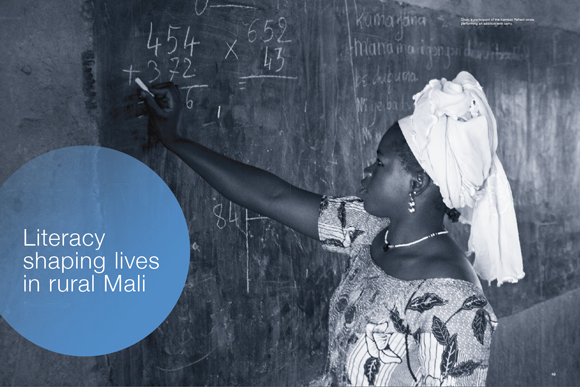
Sitan, a participant of the Kambali Reflect circle, performing an addition with carry.
Text by Mouhamadou Diagne & Ruth Sarrazin – DVV International
Photography by Fatoumata Diabaté
Malian Photographer Fatoumata Diabaté visited the villages of Kambali and Habaladougou-Kéniéba in Mali. These villages, some 100 km from the capital Bamako, are running the project VITAL, organised by DVV International and the local NGO Jeunesse & Dèveloppement (Youth & Development). A similar project is being implemented in the north of Mali, and two more in the neighbouring state of Guinea.
The French abbreviation VITAL (Village d’apprentissage Tout Au Long de la vie) means ‘villages of Lifelong Learning’. VITAL improves the lives of the inhabitants of the villages through Youth and Adult Education.
VITAL is focusing on literacy, vocational training and civic education. Of the three, literacy is the most important and the basis for the two others. Skills in reading, writing and arithmetic are taught through so-called Reflect circles.
It is in these Reflect circles that the actual needs for literacy, vocational training and civic education are discussed, translated into activities and later evaluated. Reflect is an innovative approach to adult learning and social change, which fuses the theories of Paulo Freire with the methodologies of participatory rural appraisal.
Reflect provides an on-going democratic space for a group of people to meet and discuss issues relevant to them. The participants choose the topics themselves, according to their own priorities and supported by a local facilitator.
Initially groups of learners convene to learn literacy, and develop maps, graphics, calendars and matrixes to analyse different aspects of their lives. These are done on the ground and then translated to flip-chart paper using simple pictures drawn by the illiterate participants. Words will then be added to the visual images as labels and these serve as the basis for literacy practice. Participants identify action points to resolve issues, and literacy is then put to practical use in taking forward such action.
These days, Reflect programmes around the world are hugely diverse – shaped by and adapted to the context in which they have grown as well as to the different interests/ backgrounds of their parent organisation. Some programmes remain strongly focused on linking adult literacy with empowerment while others have abandoned the teaching of literacy and focus instead on social mobilisation.
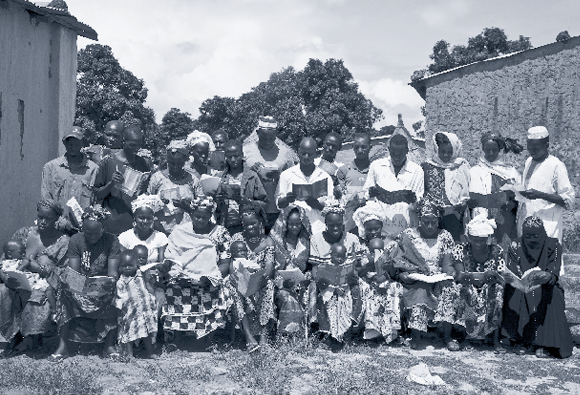
Literacy is the foundation of development – the participants of the Kambali Reflect circle.
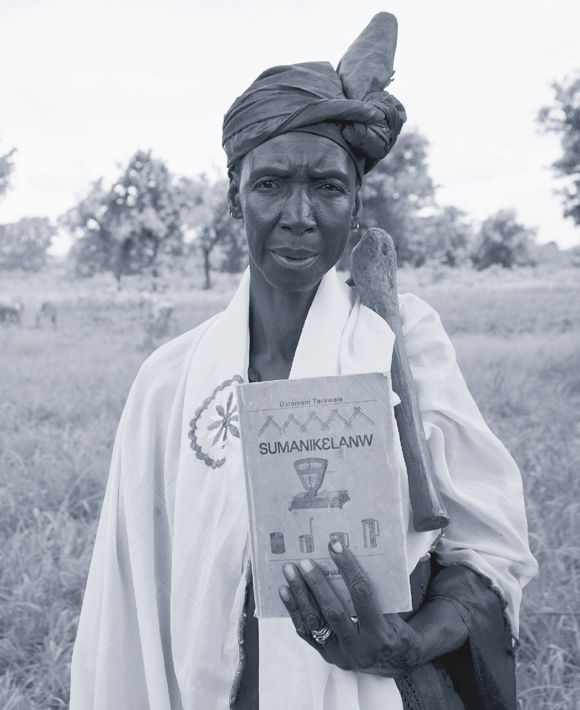
Literacy strengthens skills in farming techniques.
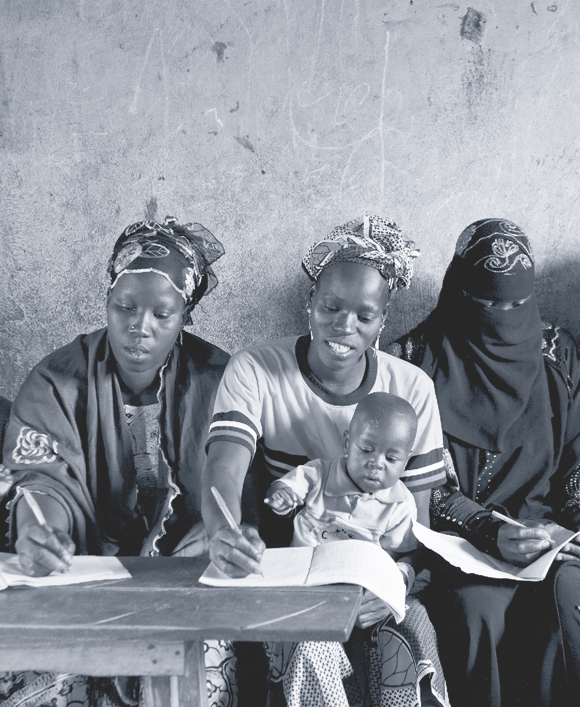
Writing session at the Kambali Reflect circle.
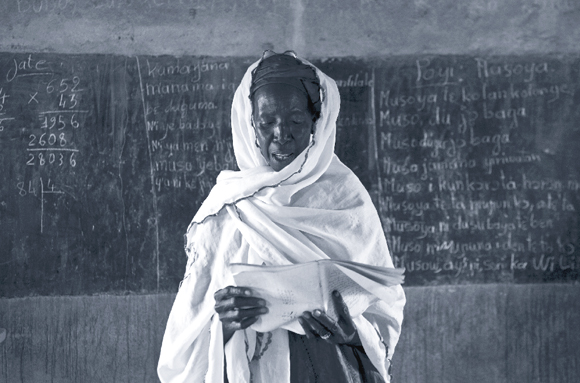
Nja Kamara, Vice President of the Management Committee of the Kambali Reflect circle reading
her poem.
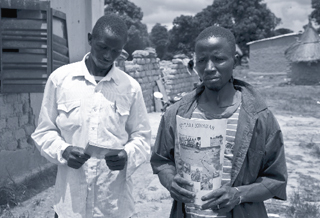
Two newly literate members of the Kambali Reflect circle.
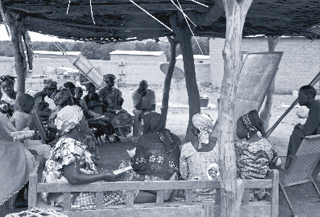
Participants of the Habaladougou-Kéniéba Reflect circle discussing malaria with the help of the ‘problem tree’. The ‘problem tree’ is a tool that communities use to analyse problems in their daily lives. The trunk of the tree symbolises the problem, the root the source of the problem and the branches its consequences. After this analysis, participants choose a symbol that represents the subject of the debate.
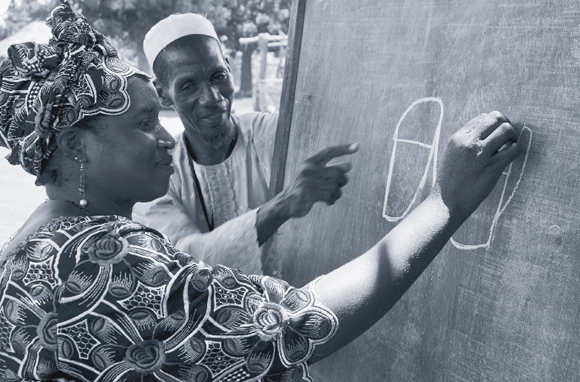
Sidiki Keita, the facilitator, helps Kadiatou, the participant, to draw the symbol derived from the malaria debate. Here it is a cup representing the stagnant water which is the source of the development of mosquito larvae
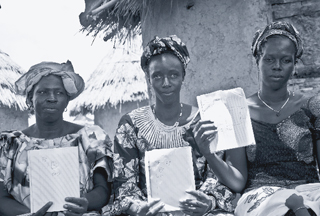
All the Reflect circle participants draw the same symbol – the cup – which is the key word in the malaria debate. This keyword is then cut into syllables and participants train writing it in letters.
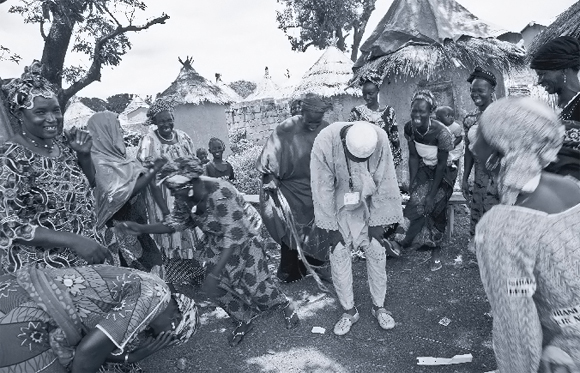
Reflect circle participants playing a game about knowledge of plants. We give assurances to losers. Here, for example, the facilitator must imitate a goat. Games or jokes are moments of relaxation and are part of the Reflect circle sessions.
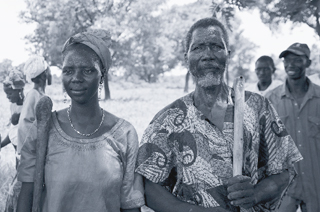
Practice session in the Kambali “field school”. The “field schools” are experimental fields in which Reflect circle participants experiment with new production techniques.


